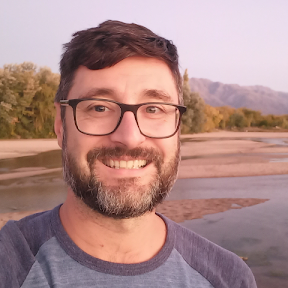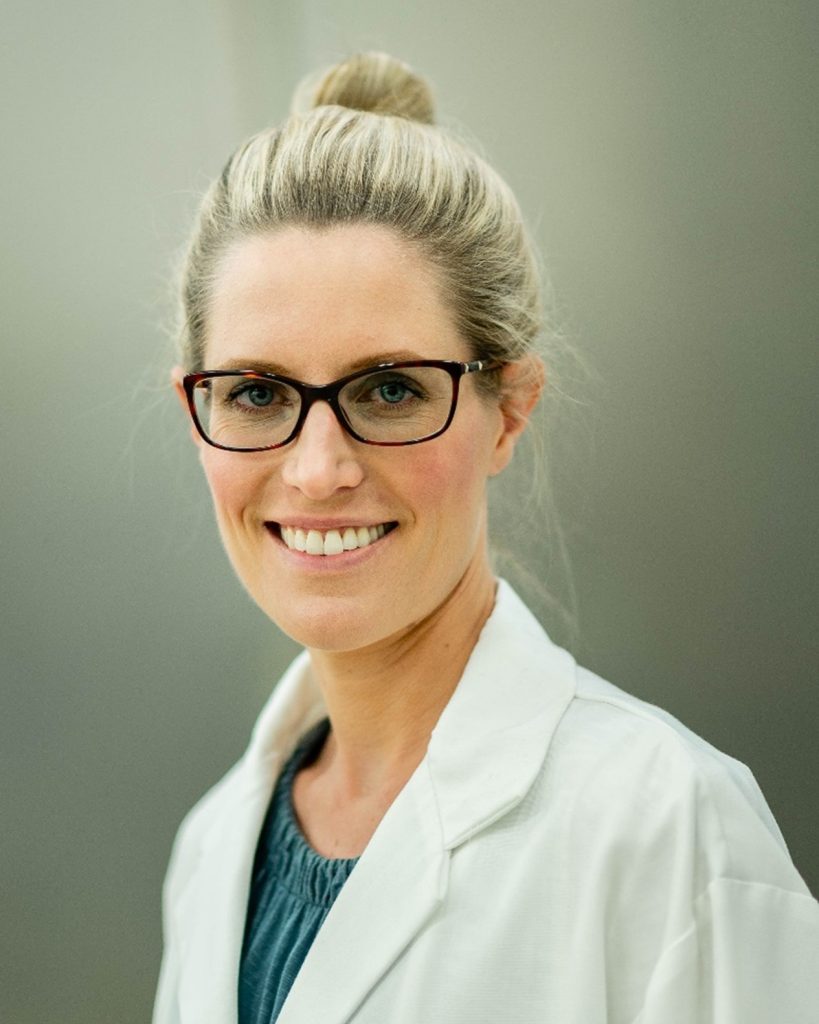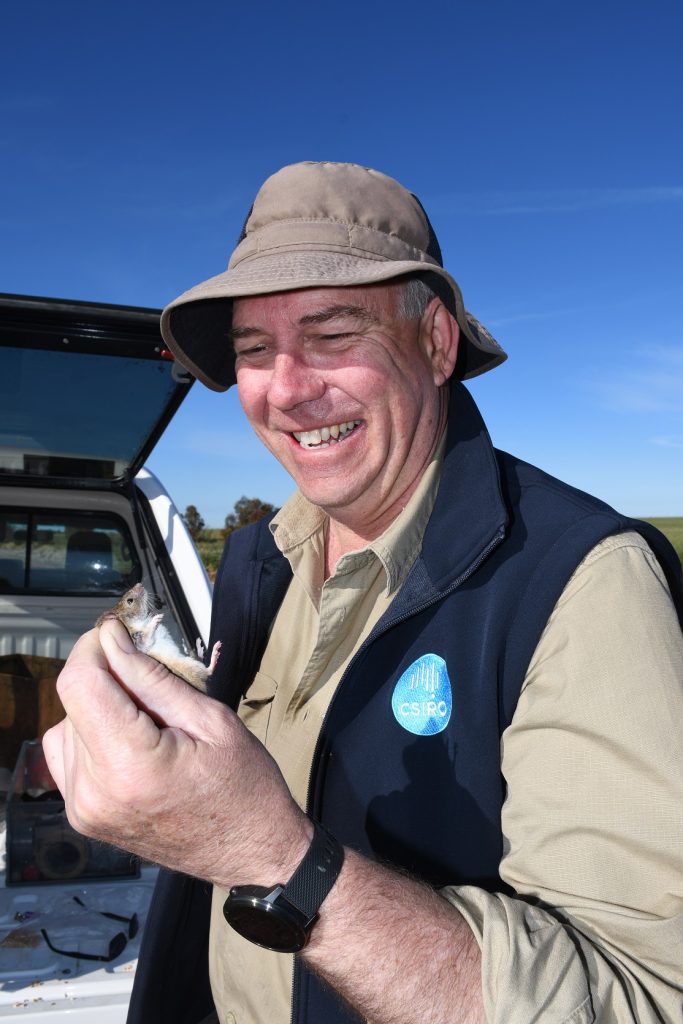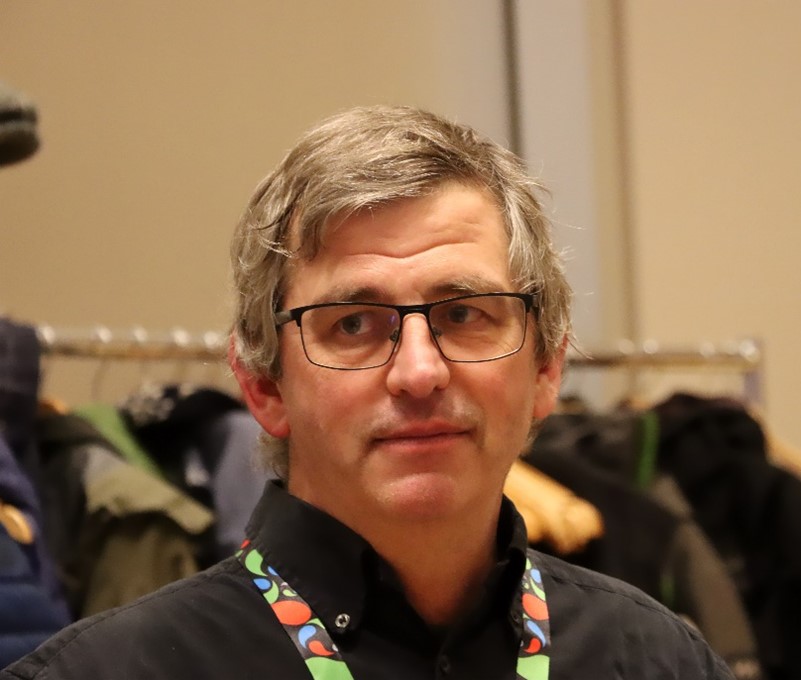
Dr Steven Belmain
Professor of Ecology, Natural Resources Institute, University of Greenwich, United Kingdom.
Title of plenary presentation:
“Putting rodents at the centre of One Health programmes – lessons and experiences”
Steve is an internationally-renowned, long-term advocate for ecologically-based rodent management, generating information on the impact of rodent pests on people’s livelihoods and health and developing sustainable methods of control without the use of poisons. This work is within a One Health framework that relies on multidisciplinary teams to understand environmental parameters and human behaviour with a view to developing ways of changing behaviours that reduce risk of zoonotic spill-over, crop damage and stabilizing habitat biodiversity.

Dr Araceli Samaniego
Island Restoration Consultant
Title of plenary presentation:
“Rodent eradications on islands: increasing scale and addressing emerging issues”
Araceli is a conservation biologist with 20+ years of experience in rodent eradications and applied research. She began her career in Mexico, leading successful eradications on tropical and temperate islands, with her PhD focusing on invasive rodent ecology. Now based in Australasia and consulting internationally, she supports rodent eradication planning on large islands (e.g., Henderson, Gough, Auckland, and Marion) and contributes to the development of novel tools like species-specific toxicants.

Dr Federico Costa
Instituto de Saúde Coletiva, Federal University of Bahia, Salvador, Brazil
Title of plenary presentation:
“Rodent management in urban landscapes – developing country perspectives”
Federico is interested in eco-epidemiological drivers of zoonotic diseases in urban environments using intensive field and laboratory data. Current areas of interest include mechanisms involved in the transmission of zoonotic diseases and the ecological and sociological factors that affect the likelihood of human and animal infection in Brazil, and the evaluation of effectiveness of basic sanitation and rodent control based intervention to prevent diseases like leptospirosis.

Dr. Chelsea Himsworth
British Columbia Regional Director for the Canadian Wildlife Health Cooperative; Clinical Associate Professor at the School of Population and Public Health, University of British Columbia.
Title of plenary presentation:
“From data to knowledge to wisdom: What interfaces can teach us about urban rats and how to manage them“
Chelsea is a veterinary pathologist and epidemiologist. Her research and practice is focused on transdisciplinary, One Health approaches to health issues at the interfaces among humans, animals, and the environment. A special focus is on understanding, monitoring and mitigating diverse harms associated with urban rats. Chelsea started the Vancouver Rat Project (vancouverratproject.ca) in 2010, and with her students has combined a variety of tools and approaches to study rat ecology, the epidemiology of zoonotic pathogens, the mental and physical health threats rats pose to people, municipal rat management policy and programming, and much more.

Dr Aaron Greenville
Senior Lecturer, School of Life and Environmental Sciences, The University of Sydney.
Title of plenary presentation:
“Contrasting dynamics of small desert mammals and the implications for conservation and management”
Aaron investigates how ecosystems and populations respond to disturbance events, such as wildfire, droughts, flooding rains and introduced species. He combines emerging technologies, advanced data science and field ecology to reveal the consequences of rapid environmental change across arid, forest and agricultural landscapes.

Dr Rica Flor
Research scientist – Innovation Systems, International Rice Research Institute, Phnom Penh, Cambodia
Title of plenary presentation:
“Enhancing rodent management at scale through effective stakeholder networks, communication strategies, and innovation enablers“
Rica has a PhD in technology and innovation studies from Wageningen University, the Netherlands. She undertakes research interests on the processes to scale innovations, adoption of technologies, and approaches to catalyze change across various stakeholders in agriculture. This also involves studies of the underlying social structures and interaction patterns that affect transitions to more sustainable agricultural systems.

Mr Steve Henry
Research Officer, CSIRO Health and Biosecurity, Canberra, Australia
Title of plenary presentation:
“Listening to farmers to improve house mouse management”
Steve’s research involves understanding mice in zero and no-till cropping systems, and developing control strategies to reduce the negative impacts of mice. The studies comprise: monitoring mouse populations to predict outbreaks, improving baits to enhance effectiveness, and applying knowledge of the ecology of mice in farming systems to develop effective control strategies. Steve works at the interface between science and the agricultural industry, focusing on communicating research outcomes to farmers, industry representatives and the public.

Dr Xavier Lambin
Professor of Ecology, University of Aberdeen in Scotland.
Title of plenary presentation:
“Conserving an endangered cultural icon, the water vole, in the face of American mink invasion of Britain: ecology, management and people”
Xavier left Belgium in 1986 after a degree in Zoology and then moved to Vancouver in Canada in 1988 where he did his PhD with Charles Krebs working with Townsend’s vole seeking to understand how nepotism can cause instability in populations. Xavier and his team are studying the demography, population dynamics and species interactions with fragmented and cyclically irruptive populations of voles and species that eat them. Much of Xavier’s work is highly applied, informing the management of endangered species including the water vole severely impacted by the invasive species American mink.

Dr Paul Thomas
Professor in the School of Biomedicine, University of Adelaide
Scientific Director of the Genome Editing Program and the SA Genome Editing Facility at the South Australian Health and Medical Research Institute.
Title of plenary presentation:
“Developing CRISPR gene drives for invasive rodent population suppression”
Paul is a molecular biologist who is developing innovative CRISPR genome editing technology for a range of applications including synthetic gene drives for invasive rodent pest suppression. Paul leads a transdisciplinary team of geneticists, modelers and ecologists who together have developed the first validated gene drive strategy for mouse genetic biocontrol.
